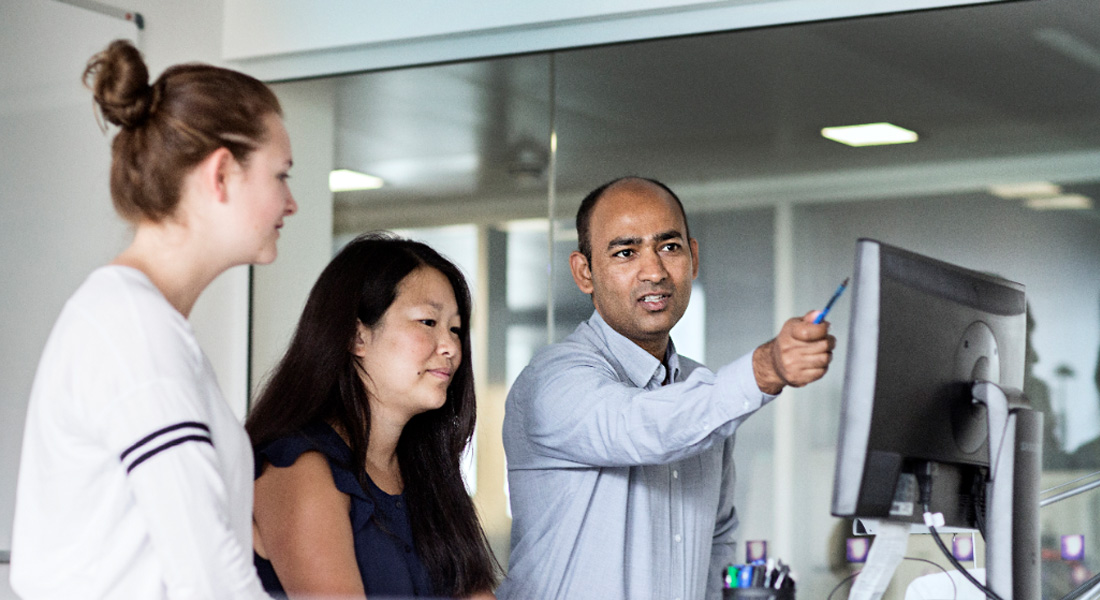
Proteomics technology development and application in the Nielsen Group
The main focus of the Nielsen Group is to establish novel proteomics methods for large-scale characterization of obscure post-translational modifications (PTMs). The work paves the way for a better understanding of the complex nature of mammalian signaling events.

The aim of the Nielsen group is to focus on utilizing and developing new methodologies enabling proteome-wide characterizing of obscure post-translational modifications, to uncover aspects which have so far been unknown.
“We develop novel proteomic technologies and combine this with imaging and bioinformatics to gain an understanding of how obscure post-translational modifications (PTMs) globally impacts cellular systems in mammalian cells. It is a deeply fascinating process with huge scientific potential,” says Professor and Group Leader Michael L. Nielsen.
Proteins engage in a wide array of molecular events, in which the ability to discriminate between functional and non-functional interactions is crucial. Although the cellular ‘modificome’ is highly complex, only a small subset of the estimated 200 possible types of post-translational modifications (PTMs) is currently amenable for analysis on a global scale. These PTMs include phosphorylation, ubiquitylation, and acetylation.
Developing proteomics technologies for comprehensive analysis of ‘not-so-well-characterized’ PTMs is a priority in the Nielsen group because such methods are required to better understand the complex nature of signaling events in the relevant context.
The Nielsen Group has established an augmented proteomics workflow for sensitive and unbiased analysis of lysine SUMOylation sites, which pinpoints modification of proteins by the small modifier-protein SUMO. This approach allows for the system-wide characterization of the functional role of SUMO in the context of for example the DNA damage response or regulation of the cell cycle.
“Site-specific mapping of the human SUMO proteome reveals co-modification with phosphorylation”
In the research article describing novel aspects related to arginine methylation, the group uncovers that arginine methylation is much more prevalent throughout the human proteome than previously anticipated, and that specific arginine methylation sites regulate the localization and function of splicing and RNA transport factors.
“Proteome-wide analysis of arginine monomethylation reveals widespread occurrence in human cells”
The group developed an unbiased enrichment method for in vivo characterization of ADP-ribosylation in cultured cells and tissue samples. This methodology will facilitate new insights into this emerging modification, with ADP-ribosylation playing significant functional roles in disease-related biological processes.
“Proteome-Wide Identification of In Vivo ADP-Ribose Acceptor Sites by Liquid Chromatography-Tanden Mass Spectrometry”
Staff list
| Name | Title | Phone | |
|---|---|---|---|
| Caroline Linnea Elin Lennartsson | Research Assistant | ||
| Jonas Damgaard Elsborg | Postdoc | +4535325362 |



